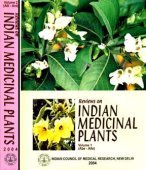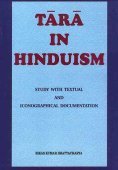Al, Āl: 11 definitions
Introduction:
Al means something in Hinduism, Sanskrit, biology, Tamil. If you want to know the exact meaning, history, etymology or English translation of this term then check out the descriptions on this page. Add your comment or reference to a book if you want to contribute to this summary article.
Images (photo gallery)
In Hinduism
Vyakarana (Sanskrit grammar)
Source: Wikisource: A dictionary of Sanskrit grammarAl (अल्).—A प्रत्याहार (pratyāhāra) or a short term signifying any letter in the alphabet of Pāṇini which consists of 9 vowels, 4 semivowels, 25 class-consonants, and 4 sibilants.
--- OR ---
Āl (आल्).—Case affix in Vedic literature e.g. वनन्ता यजेत (vanantā yajeta) Kāś. on VII.1.39.

Vyakarana (व्याकरण, vyākaraṇa) refers to Sanskrit grammar and represents one of the six additional sciences (vedanga) to be studied along with the Vedas. Vyakarana concerns itself with the rules of Sanskrit grammar and linguistic analysis in order to establish the correct context of words and sentences.
Biology (plants and animals)
Source: Wisdom Library: Local Names of Plants and DrugsAl [अल] in the Kashmiri language is the name of a plant identified with Cucurbita maxima Duchesne from the Cucurbitaceae (Pumpkin) family. For the possible medicinal usage of al, you can check this page for potential sources and references, although be aware that any some or none of the side-effects may not be mentioned here, wether they be harmful or beneficial to health.
Al [आल] in the Hindi language is the name of a plant identified with Morinda coreia Buch.-Ham. from the Rubiaceae (Coffee) family having the following synonyms: Morinda tinctoria, Morinda pubescens, Morinda coreia var. tomentosa.
Al in the Malayalam language is the name of a plant identified with Ficus tsjakela Burm.f. from the Moraceae (Mulberry) family having the following synonyms: Ficus tsjahela Burm. f..
Source: Google Books: CRC World Dictionary (Regional names)1) Al in India is the name of a plant defined with Alternanthera sessilis in various botanical sources. This page contains potential references in Ayurveda, modern medicine, and other folk traditions or local practices It has the synonym Achyranthes polygonoides Lam. (among others).
2) Al is also identified with Ficus benghalensis It has the synonym Ficus cotonaeifolia Vahl (etc.).
3) Al is also identified with Morinda tomentosa It has the synonym Morinda tomentosa B. Heyne.
Example references for further research on medicinal uses or toxicity (see latin names for full list):
· Species Plantarum
· Flora of Ecuador (1987)
· Species Plantarum (1762)
· Flora AegyptiacoArabica (1775)
· Novae Plantarum Species praesertim Indiae Orientalis (1821)
· Species Plantarum (1753)
If you are looking for specific details regarding Al, for example health benefits, extract dosage, chemical composition, side effects, diet and recipes, pregnancy safety, have a look at these references.

This sections includes definitions from the five kingdoms of living things: Animals, Plants, Fungi, Protists and Monera. It will include both the official binomial nomenclature (scientific names usually in Latin) as well as regional spellings and variants.
Languages of India and abroad
Sanskrit dictionary
Source: DDSA: The practical Sanskrit-English dictionaryAl (अल्).—1 U. (alati-te alitum, alita)
1) To adorn.
2) To be competent or able.
3) To prevent, ward off; see अलम् (alam).
Source: Cologne Digital Sanskrit Dictionaries: Shabda-Sagara Sanskrit-English DictionaryAl (अल्).—[ala] r. 1st. cl. also read alaṃ (alati-te) 1. To adorn. 2. To be competent or able. 3. To prevent.
Source: Cologne Digital Sanskrit Dictionaries: Benfey Sanskrit-English DictionaryAl (अल्).—i. 1, [Parasmaipada.] 1. To adorn. 2. To be able. 3. To prevent.
Source: Cologne Digital Sanskrit Dictionaries: Monier-Williams Sanskrit-English DictionaryAl (अल्):—[class] 1. [Parasmaipada] alati, to adorn, [cf. Lexicographers, esp. such as amarasiṃha, halāyudha, hemacandra, etc.];
—to be competent or able, [cf. Lexicographers, esp. such as amarasiṃha, halāyudha, hemacandra, etc.];
—to prevent, [cf. Lexicographers, esp. such as amarasiṃha, halāyudha, hemacandra, etc.] ([The root is evidently invented for the derivation of alam q.v.])
[Sanskrit to German]
Sanskrit, also spelled संस्कृतम् (saṃskṛtam), is an ancient language of India commonly seen as the grandmother of the Indo-European language family (even English!). Closely allied with Prakrit and Pali, Sanskrit is more exhaustive in both grammar and terms and has the most extensive collection of literature in the world, greatly surpassing its sister-languages Greek and Latin.
Kannada-English dictionary
Source: Alar: Kannada-English corpusAḷ (ಅಳ್):—[verb] to sob and shed tears, with or without making a loud vocal sound, in expressing sorrow, pain, grief, etc.; weep.
--- OR ---
Aḷ (ಅಳ್):—[noun] a loud vocal sound expressing pain, anger, fright, joy, etc.; a fit of weeping.
--- OR ---
Aḷ (ಅಳ್):—
1) [adjective] soft; delicate; tender.
2) [adjective] weak; fragile; thin.
--- OR ---
Aḷ (ಅಳ್):—[noun] thick; viscous; dense.
--- OR ---
Aḷ (ಅಳ್):—[adjective] not deep; superficial; shallow.
--- OR ---
Aḻ (ಅೞ್):—[verb] to make a loud vocal sound or utterance; to sob and shed tears in expressing sorrow, pain, grief, etc.; to weep; to cry.
--- OR ---
Aḻ (ಅೞ್):—[noun] the act or an instance of crying; a cry.
--- OR ---
Āl (ಆಲ್):—
1) [verb] to shout aloud; to scream.
2) [verb] ಆಲಕರೆ [alakare] ālakare to call a person by shouting (his name or making a screaming sound); ಆಲಿಕೊಳ್ [alikol] ālikoḷ to shout aloud; to scream.
--- OR ---
Āḷ (ಆಳ್):—
1) [verb] to exercise authority over; to rule; to administer; to direct; to control; to manage, to govern.
2) [verb] to obtain; to get; to have; to possess.
3) [verb] to enjoy; to use with delight and satisfaction.
4) [verb] to protect; to faster; to take care of.
5) [verb] ಆಳ್ದ [alda] āḷda one who ruled or governed; a king; a lord; 2. a man with reference to the woman to whom he is married; a husband; ಆಳ್ದನಚಕ್ರ [aldanacakra] āḷdanacakra a main guard or a trusted soldier (of a king etc.) (chiefly used as a title meaning literarily - 'the sharp discus weapon in the hand of the king'); ಆಳ್ದಳ್ [aldal] āḷdaḷa mistress a) a woman who ruled others or had control, authority or power over something; b) a woman who was head of a household; 2. a woman in her relationship to her husband; a wife; ಆಳ್ವನ್ [alvan] āḷvan he who rules; a king; a lord; ಆಳಿಬಾಳಿದವ [alibalidava] āḷibāḷidava an elderly man with rich experience and wisdom; ಆಳ್ದೊತ್ತು [aldottu] āḷdottu to seize and press hard; ಆಳ್ದುಂಬರ್ಪರ್ [aldumbarpar] āḷdumbarpar (pl.) those who occupy, seize and rule over.
--- OR ---
Āḷ (ಆಳ್):—
1) [verb] to go under the surface of a liquid; to plunge or sink oneself in to water etc.
2) [verb] to be engaged or absorbed deeply (as in a work, sorrow, etc.); 3) to be or to go within.
3) [verb] to cause to drown.
4) [verb] to fall losing one’s strength; to collapse.
--- OR ---
Āḷ (ಆಳ್):—
1) [noun] a human being; a woman or a man.
2) [noun] (gen.) a man.
3) [noun] a man of capacity; a capable man; a manly person.
4) [noun] a soldier.
5) [noun] a member of that branch of an army consisting of soldiers trained and equipped to fight chiefly on foot; a foot-soldier.
6) [noun] a disciple.
7) [noun] a person employed to perform services, esp. household duties, for another; a servant.
8) [noun] a chess piece of the lowest value which can be moved only forward and one square at a time (or two squares on its first move), and which captures with a diagonal move; a pawn.
9) [noun] a measure of depth or height, varying from 5 feet to six feet.
10) [noun] ಆಳಾಗಿಸಿಕೊ [alagisiko] āḷāgisiko to make (another person) a servant; to make a person a slave for oneself; ಆಳಾಳ್ [alal] āḷāḷa slave of a slave; a very humble person.
--- OR ---
Āḻ (ಆೞ್):—
1) [verb] to go under the surface of a liquid; to plunge oneself into water.
2) [verb] to be engaged or involved deeply; to be absorbed in (as in a work, grief, etc.).
3) [verb] to go under or within; to bury oneself.
4) [verb] to fall loosing strength; to collapse; to sag.
5) [verb] to cause to go under the surface of a liquid; to drop into a liquid so as to cover completely; to dip;6) [verb] ಆೞೆನಡು [alenadu] āłenaḍu to plant deeply; to set firmly as into the ground; to fix in position; 2. to fix in the mind (an idea, etc.); ಆೞೆಪುಗು [alepugu] āłepugu to go inside or under completely; ಆೞೆವುಗು [alevugu] āłevugu = ಆೞೆಪುಗು [alepugu].
Kannada is a Dravidian language (as opposed to the Indo-European language family) mainly spoken in the southwestern region of India.
Tamil dictionary
Source: DDSA: University of Madras: Tamil LexiconAl (அல்) noun probably from அல்லு- [allu-] [Malayalam: al.]
1. Night; இரா. (பிங்கலகண்டு) [ira. (pingalagandu)]
2. Darkness; இருள். (பிங்கலகண்டு) [irul. (pingalagandu)]
3. Evening; அந்திவேளை. [anthivelai.] (பத்துப்பாட்டு: மதுரைக்காஞ்சி [pathuppattu: mathuraikkanchi] 544.)
4. Confusion, delusion; மயக்கம். [mayakkam.] (ஒழிவிலொடுக்கம் பொதுவி. [ozhivilodukkam pothuvi.] 6.)
--- OR ---
Al (அல்) noun < hal. Consonant; மெய்யெ ழுத்து. அச்சு மல்லா வல்லுமா மெழுத்து [meyye zhuthu. achu malla valluma mezhuthu] (திருநூற்றந்தாதி [thirunurrandathi] 21).
--- OR ---
Al (அல்) particle
1. Verb-ending: (a) 1st person singular after the future tense part. ப் [p] or வ் [v], as in காண்பல், செய்வல்; எதிர்காலத் தன்மையொருமை விகுதி [kanpal, seyval; ethirkalath thanmaiyorumai viguthi]: (b) optative; உடன்பாட்டு வியங்கோல் விகுதி. மக்கட்பதடியெனல் [udanpattu viyangol viguthi. makkadpathadiyenal] (திருக்குறள் [thirukkural], 196).
2. A suffix of verbal nouns, as in செயல் [seyal]; தொழிற்பெயர் விகுதி. [thozhirpeyar viguthi.]
3. A euphonic augment, as in தொடையல்; ஒரு சாரியை. [thodaiyal; oru sariyai.]
4. Noun suffix in masculine singular, as in இளவல்; ஆண்பாற்பெயர் விகுதி. [ilaval; anparpeyar viguthi.]
--- OR ---
Al (அல்) < அல்[ன்]-மை. [al[n]-mai.] (Conjunctional forms. அல்லேன், அல்லேம், அல்லை, அல்லிர், அல்லன், அல்லர், அல்லள், அன்று, அல்ல. [allen, allem, allai, allir, allan, allar, allal, anru, alla.]) Base of the appellative verb that negatives the attributes of a thing; எதிர்மறைக் குறிப்பு வினைப்பகுதி. [ethirmaraig kurippu vinaippaguthi.]
--- OR ---
Al (அல்) particle < idem.
1. Neg. verb-ending: (a) impersonal singular; எதிர்மறையேவல் ஒருமை விகுதி. இளங்கொடியே யிடரெய்தல் [ethirmaraiyeval orumai viguthi. ilangodiye yidareythal] (திருக்கோவையார் [thirukkovaiyar] 15).: (b) optative; எதிர்மறைவியங்கோள் விகுதி. மகனெனல் [ethirmaraiviyangol viguthi. maganenal] (திருக்குறள் [thirukkural], 196).
2. Neg. verb sign; எதிர்மறைவினையிடை நிலை. வாழலேன். [ethirmaraivinaiyidai nilai. vazhalen.]
--- OR ---
Aḷ (அள்) noun < அள்ளு-. [allu-.]
1. Closeness, thickness; செறிவு. (திவா.) [serivu. (thiva.)]
2. Sharpness, keenness of edge; கூர்மை. (திவா.) [kurmai. (thiva.)]
3. Lock, padlock; பூட்டு. (பிங்கலகண்டு) [puttu. (pingalagandu)]
4. Clamp, iron band to hold parts together; பற்றிரும்பு. (பிங்கலகண்டு) [parrirumbu. (pingalagandu)]
5. Block connecting the spring with the axle; வண்டிவில்லைத் தாங்குங் கட்டை. [vandivillaith thangung kattai.] Local usage
6. Handful, anything contained within the hollow of the hand; அள்ளப்படுவது. [allappaduvathu.] (inscription)
7. Strength, firmness; வன்மை. (சூடாமணிநிகண்டு) [vanmai. (sudamaninigandu)]
8. Ear; காது. (பிங்கலகண்டு) [kathu. (pingalagandu)]
9. See அள்ளுமாந்தம். [allumantham.] (தைலவருக்கச்சுருக்கம் தைல. [thailavarukkachurukkam thaila.] 8.)
10. Species of Hygrophila. See நீர் முள்ளி. (இராஜ வைத்தியமகுடம்) [nir mulli. (iraja vaithiyamagudam)]
--- OR ---
Aḷ (அள்) particle Third person singular fem. ending; பெண்பால் விகுதி. அவள் வந்தனள். [penpal viguthi. aval vanthanal.]
--- OR ---
Āl (ஆல்) noun < அகல்-. [agal-.]
1. Earthen vessel; அகற்சட்டி. [agarsatti.] Colloq.
2. [K. āla, M. āl.] Banyan,
1. transitive, Ficus bengalensis, as widespreading; மரவகை. [maravagai.] (நாலாயிர திவ்யப்பிரபந்தம் இயற். [nalayira thivyappirapandam iyar.] 1, 69.)
--- OR ---
Āl (ஆல்) noun probably from ஆலு-. [alu-.]
1. Water; நீர். ஆலின்மே லாலமர்ந்தான் [nir. alinme lalamarnthan] (நாலாயிர திவ்யப்பிரபந்தம் திருவாய்மொழி [nalayira thivyappirapandam thiruvaymozhi]
9. 10. 1, ஈடு-முப்பத்தாறுயிரப்படி [idu-muppatharuyirappadi]).
2. Flood; வெள்ளம். [vellam.] (மாற. [mara.] 262, பக். [pag.] 446.)
--- OR ---
Āl (ஆல்) noun < ஆரல்¹. [aral¹.] The third nakṣatra. See கார்த்திகை. அகலிரு விசும்பி னாஅல் போல [karthigai. agaliru visumbi naal pola] (பத்துப்பாட்டு: மலை [pathuppattu: malai] 100).
--- OR ---
Āl (ஆல்) adverb probably from ஆ-. [a-.] Yes; ஆமெனல். (சூடாமணிநிகண்டு) [amenal. (sudamaninigandu)]
--- OR ---
Āl (ஆல்) particle
1. Particle expressive of surprise or pity or certainty; அதிசயம் இரக்கம் தேற்றம் இவற்றைக் குறிப்பிக்கும் இடைச்சொல். [athisayam irakkam therram ivarraig kurippikkum idaichol.]
2. poetics expletive affixed to nouns and finite verbs; ஓர் அசைநிலை. யாதானு நாடாமா லூராமால் [or asainilai. yathanu nadama luramal] (திருக்குறள் [thirukkural], 397).
3. Noun ending: (a) of the instrumental, as in வாளால் வெட்டினான்; மூன்றாம் வேற்றுமை யுருபு. [valal vettinan; munram verrumai yurupu.] (b) of verbal nouns, as அழால்; தொழிற்பெயர் விகுதி. [azhal; thozhirpeyar viguthi.] (புறநானூறு [purananuru] 46.)
4. Verb ending: (a) of the negative injunctive as in ஒரால்; எதிர்மறை வியங் கோள்விகுதி. [oral; ethirmarai viyang kolviguthi.] (b) future verbal participle, as in நீ வந் தால்; எதிர்கால வினையெச்சவிகுதி. [ni van thal; ethirkala vinaiyechaviguthi.]
--- OR ---
Āl (ஆல்) noun < āla. Poison; நஞ்சு. ஆற்படு களத்தினான் [nanchu. arpadu kalathinan] (இரகுவமிசம் மாலை. [iraguvamisam vaithiya malaiyagarathi] 41).
--- OR ---
Āḻ (ஆழ்) [āḻtal] 4 intransitive verb [Kanarese, Malayalam: āḻ.]
1. To sink, plunge, dive; மூழ்குதல். ஆழ்கலத் தன்ன கலி [muzhkuthal. azhkalath thanna kali] (நாலடியார் [naladiyar] 12).
2. To be absorbed. immersed, overwhelmed; அழுந்துதல். அல்லலுற் றழுங்கி நெஞ்சிற் கட்டியங்கார னாழ்ந்தான் [azhunthuthal. allalur razhungi nenchir kattiyangara nazhnthan] (சீவகசிந்தாமணி [sivagasindamani] 438).
3. To fall down; விழுதல். கைம்முத றுணிந்துகளி றாழ [vizhuthal. kaimmutha runinthugali razha] (சீவகசிந்தாமணி [sivagasindamani] 282).
4. To enter, pierce; பதிதல். வாளிக ளன்னவை . . . நிறத்தி னாழ்பவே [pathithal. valiga lannavai . . . nirathi nazhpave] (கம்பராமாயணம் நகர. [kambaramayanam nagara.] 64).
5. To be idle, lazy; சோம்புதல். (திவா.) [sombuthal. (thiva.)]
6. To be deep; ஆழாமாதல். ஆழ்கடல். [azhamathal. azhkadal.]
7. To suffer; வருந்துதல். [varunthuthal.] (பதினொராந்திருமுறை காரைக். திருவிரட்டை. [pathinorandirumurai karaig. thiruvirattai.] 6.)
--- OR ---
Āḻ (ஆழ்) [āḻtal] 4 transitive verb < அகழ்-. [agazh-.] To dig; அகழ்தல். ஆழ்ந்து காணா ருயர்ந்தெய்த கில்லார் [agazhthal. azhnthu kananul ruyarntheytha killar] (தேவாரம் [thevaram] 1153, 9).
--- OR ---
Āḷ (ஆள்) [āḷ(ḷu)tal] 2 transitive verb [Telugu: ēlu, Kanarese, Malayalam: āl.]
1. To rule, reign over, govern; அரசுசெய்தல். [arasuseythal.] (நாலாயிர திவ்யப்பிரபந்தம் பெரியதி. [nalayira thivyappirapandam periyathi.] 6, 2, 5.)
2. To receive or accept, as a protégé; ஆட்கொள்ளு தல். ஆள்கின்றா னாழியான் [adkollu thal. alkinra nazhiyan] (நாலாயிர திவ்யப்பிரபந்தம் திருவாய்மொழி [nalayira thivyappirapandam thiruvaymozhi] 10, 4, 3).
3. To control, manage, as a household; அடக்கி யாளுதல். [adakki yaluthal.]
4. To use a word in a particular sense and so give currency to it; வழங்குதல். சான்றோரா லாளப்பட்ட சொல். [vazhanguthal. sanrora lalappatta sol.]
5. To cherish, maintain; கைக்கொள்ளுதல். நாணாள்பவர் [kaikkolluthal. nanalpavar] (திருக்குறள் [thirukkural], 1017).
6. To keep or maintain in use; கையா ளுதல். எடுத்தாளாத பொருள் உதவாது. [kaiya luthal. eduthalatha porul uthavathu.]
--- OR ---
Āḷ (ஆள்) noun < ஆள்-. [al-.] [Kanarese, Malayalam: Travancore usage āl.]
1. Man; ஆண்மகன். நல்லா ளிலாத குடி [anmagan. nalla lilatha kudi] (திருக்குறள் [thirukkural], 1030).
2. Man of capacity, capable man, manly person; சமர்த்தன். ஆளல்லான் செல்வக் குடியுட் பிறத்தலும் [samarthan. alallan selvag kudiyud pirathalum] (திரிக. [thiriga.] 7).
3. Warrior; வீரன். பிள்ளை கடுப்பப் பிணம்பிறங்க வாளெறிந்து [viran. pillai kaduppap pinambiranga valerinthu] (புறப்பொருள்வெண்பாமாலை [purapporulvenpamalai] 2, 7).
4. Foot soldier; காலாள். [kalal.] (புறப்பொருள்வெண்பாமாலை [purapporulvenpamalai] 7, 13.)
5. Husband; கணவன். ஆளில்லா மங்கைக் கழகு [kanavan. alilla mangaig kazhagu] (வாக்குண்டாம் [vakkundam] 3).
6. Servant, slave, labourer; ஊழியன். ஏதிலார்க் காளாய் [uzhiyan. ethilark kalay] (நாலடியார் [naladiyar] 122).
7. Devotee; தொண்டன். நின்னாளானார்க் குண்ணார்ந்த வாரமுதே [thondan. ninnalanark kunnarntha varamuthe] (திருவாசகம் [thiruvasagam] 38, 2).
8. Serving as a slave; ஆட்செய்கை. ஆளரிக் கும் மரிதாய் [adseykai. alarig kum marithay] (திருக்கோவையார் [thirukkovaiyar] 225).
9. Person, adult, sturdy fellow; வளர்ந்த ஆள். அந்தப் பையனும் பெண்ணும் இப்போது ஆளாய்விட்டார்கள். [valarntha al. anthap paiyanum pennum ippothu alayvittarkal.] Colloq.
10. Man's height, as a standard measure; ஆள்மட்டம். அந்தக் கேணி எத்தனை ஆளாழம் [almattam. anthag keni ethanai alazham]?
--- OR ---
Āḷ (ஆள்) particle
1. Noun ending of the 3rd person fem. singular as in இல்லாள்; பெண்பாற் பெயர்விகுதி. [illal; penpar peyarviguthi.]
2. Verb ending of the 3rd person fem. singular as in வந்தாள்; பெண்பால் வினைமுற்றுவிகுதி. [vanthal; penpal vinaimurruviguthi.]
--- OR ---
Al (அல்) noun perhaps from எல். (அகராதி நிகண்டு) [el. (agarathi nigandu)]
1. Sun; சூரியன். [suriyan.]
2. Sunshine; வெயில். [veyil.]
--- OR ---
Āl (ஆல்) noun cf. அல். [al.] Word meaning 'no'; அல்ல வென்னும் பொருளில் வருஞ் சொல். (அகராதி நிகண்டு) [alla vennum porulil varugn sol. (agarathi nigandu)]
--- OR ---
Āḷ (ஆள்) noun ((சங்கத்தகராதி) தமிழ்சொல்லகராதி [(sangathagarathi) thamizhsollagarathi])
1. cf. ஆல். [al.] Pipal; அரசு. [arasu.]
2. Touch-me-not; தொட்டால்வாடி. [thottalvadi.]
Tamil is an ancient language of India from the Dravidian family spoken by roughly 250 million people mainly in southern India and Sri Lanka.
See also (Relevant definitions)
Starts with (+3858): Aah, Aalaapak, Aalokancho, Al lende, Al-amarcelvan, Al-amarkatavul, Al-ankatu, Al-Biruni, Al-buda, Al-eluttucelai, Al-fazari, Al-ghasool, Al-kanet, Al-khowarizmi, Al-Mansur, Al-Masudi, Al-Nadim, Al-pai-ue, Al-ppara, Al-utaiyaaracu.
Ends with (+6670): A-mal, A-nalikal, Aabal, Aag-chotal, Aahaal, Aajkal, Aakha-shal, Aal, Aanaccuural, Aanakkantal, Aank ral, Abacate-creme vegetal, Abal, Abhijal, Abhijval, Abhiprajval, Abhiprakshal, Abhivijval, Abhyavajval, Abhyugjval.
Full-text (+748): Aal, Kal-aal, Alkatarruyinron, Vekataiyal, Onriyal, Veriyal, Ventamaraiyal, Kutiyal, Velaiyal, Kuruvalu, Al-amarkatavul, Alpurusham, Patilal, Alluru, Al-ankatu, Kilampinaval, Al-utaiyatevar, Alamanci, Kuru-kutial, Vilaiyal.
Relevant text
One of your search terms exceeds the minimun character amount per search term. This amount currently equals 2.
No search results for Al, Āl, Aḷ, Aḻ, Āḷ, Āḻ, Aal, Azh, Aazh; (plurals include: Aals, Azhs, Aazhs) in any book or story.
Related products





